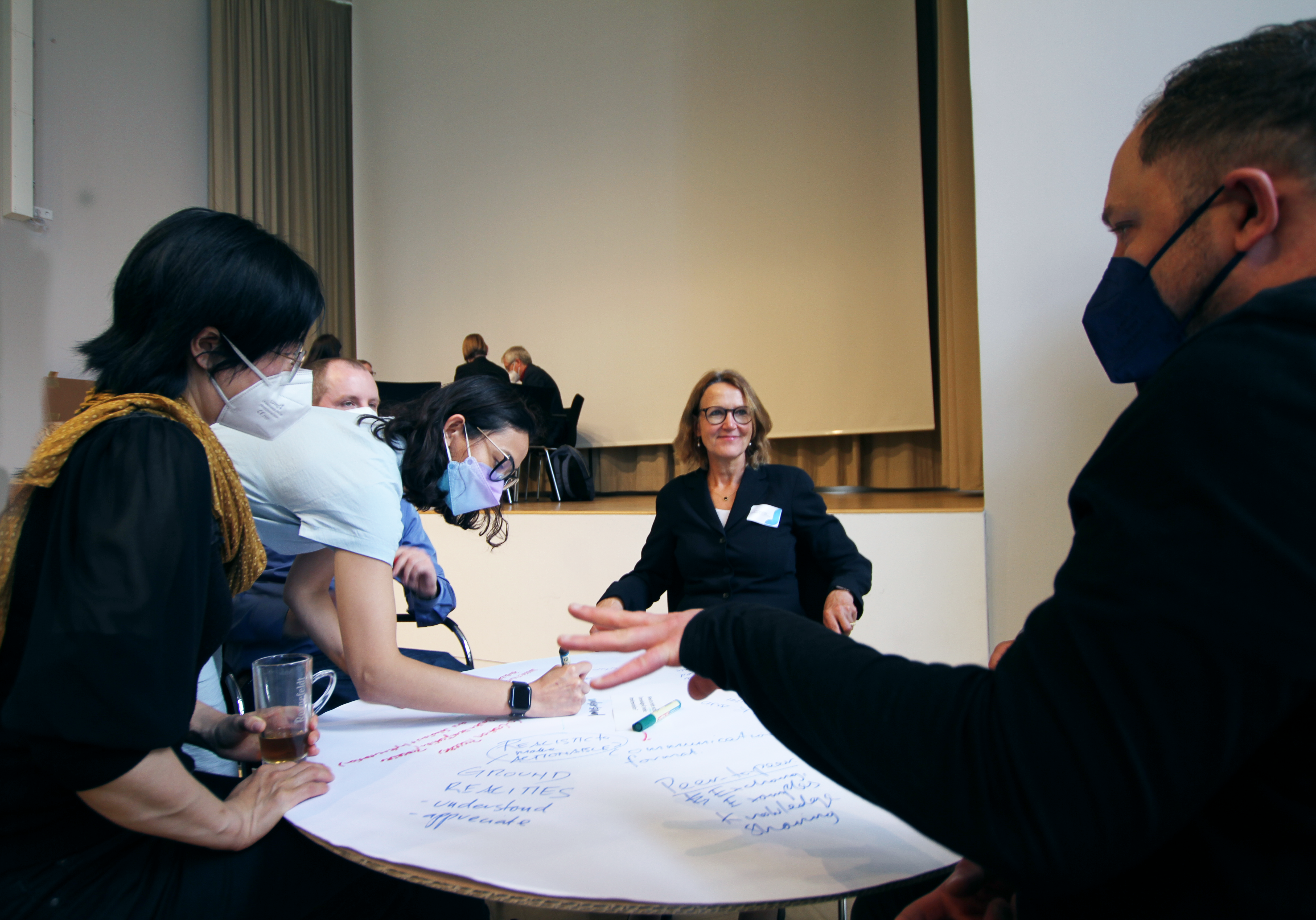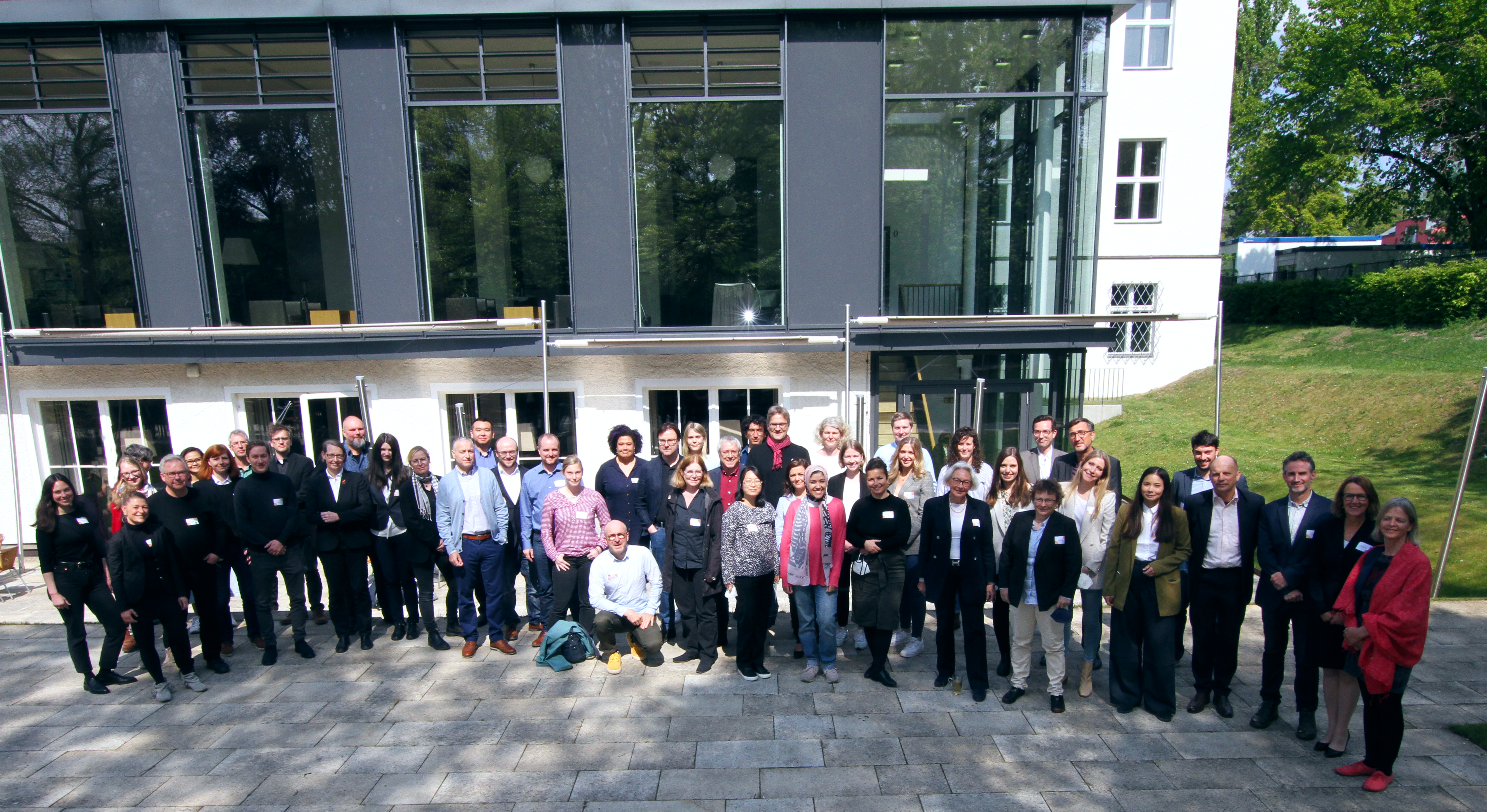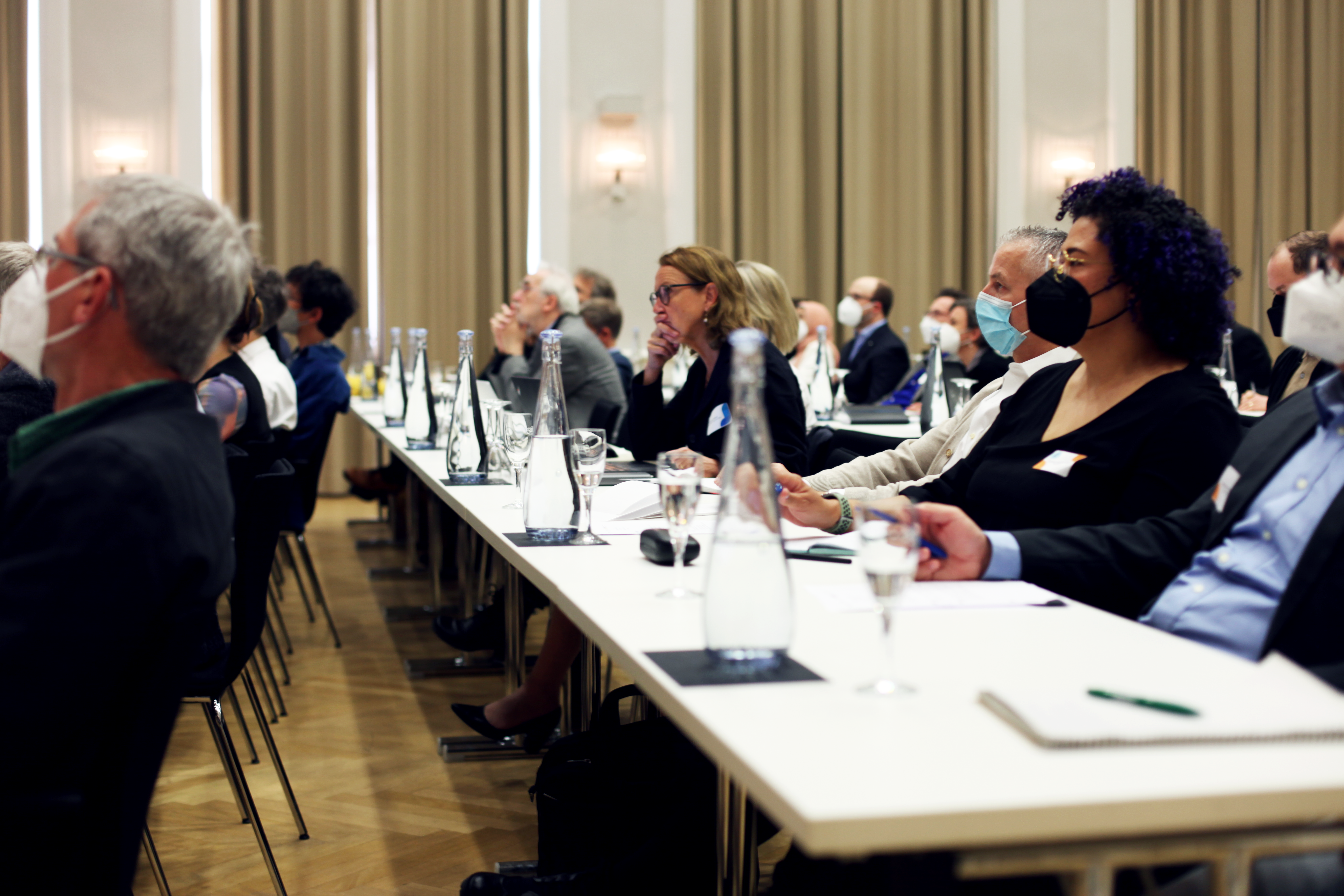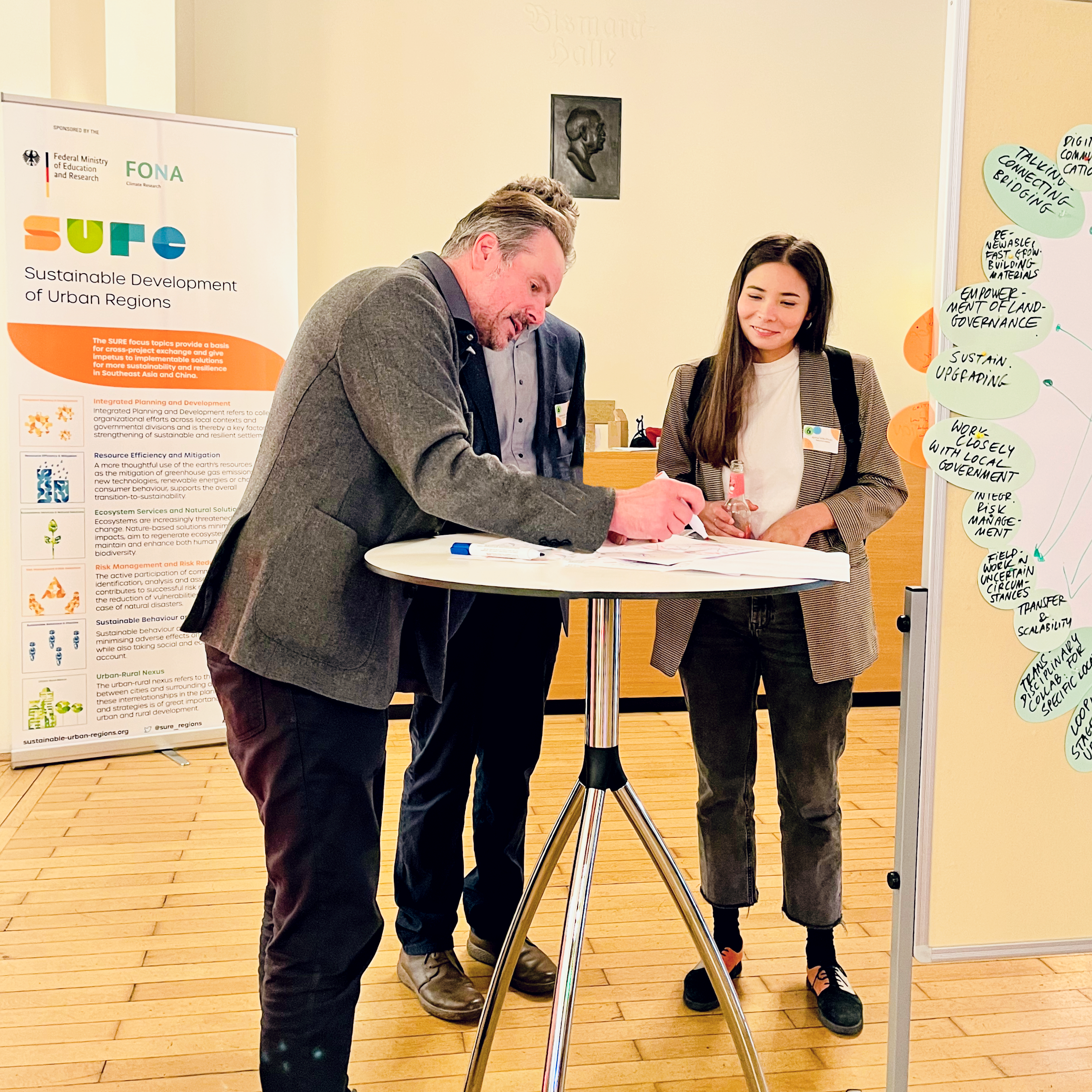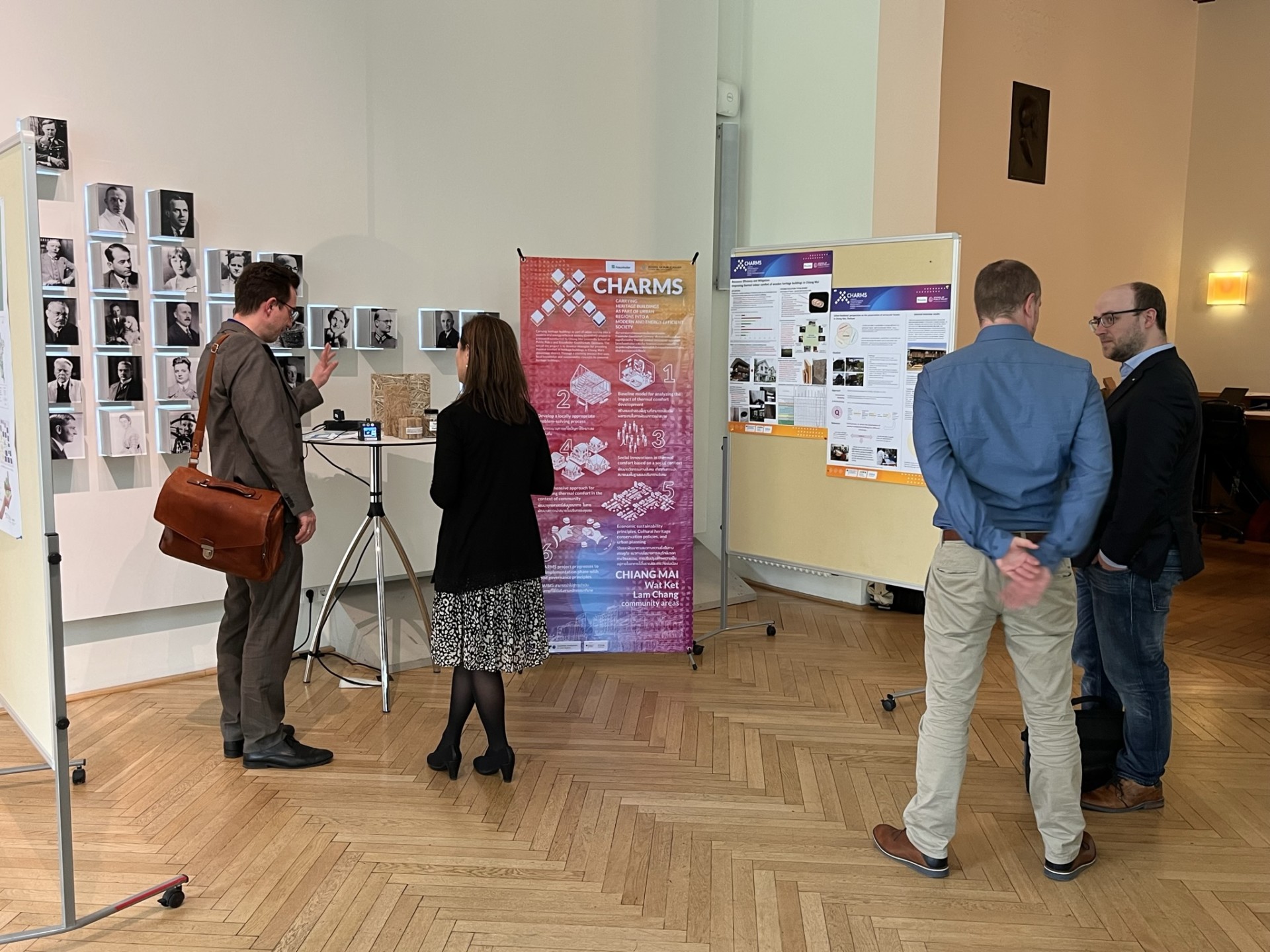The funding priority »Sustainable Development of Urban Regions« held its first status seminar
The Federal Ministry of Education and Research (BMBF) organised the first status seminar of the funding priority »Sustainable Development of Urban Regions« (SURE). The status seminar took place on 4 and 5 May 2022 at the Harnack Haus in Berlin.
The status seminar provided a snapshot of the ongoing research of the SURE collaborative projects. Together, around 80 programme participants from Germany discussed ways of urban-rural transformation and transdisciplinary learning for a sustainable future. Partner institutions from Southeast Asia and China as well as other interested parties could participate online and also experience outstanding keynote speakers such as Mark Kammerbauer (Nexialist Agency for Research and Communication) and Thorsten Philipp (Technische Universität Berlin). Feel free to download Mark Kammerbauer’s presentation on »Cities on the global path towards sustainability« and Thorsten Philipp’s presentation on »Embrace plurality, dismantle hierarchies, practice complicity«.
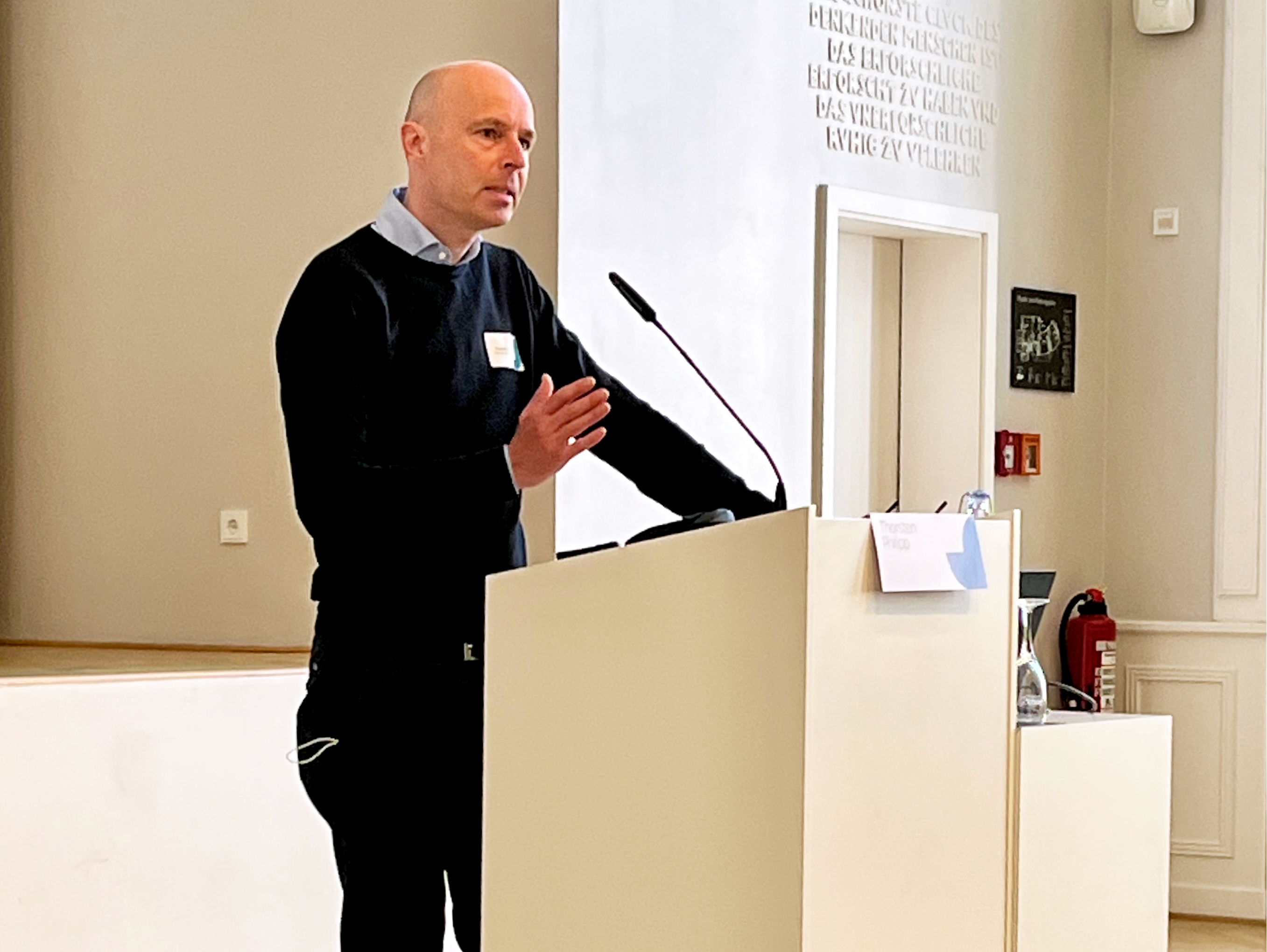
Format_Anpassung
Thorsten Philipp
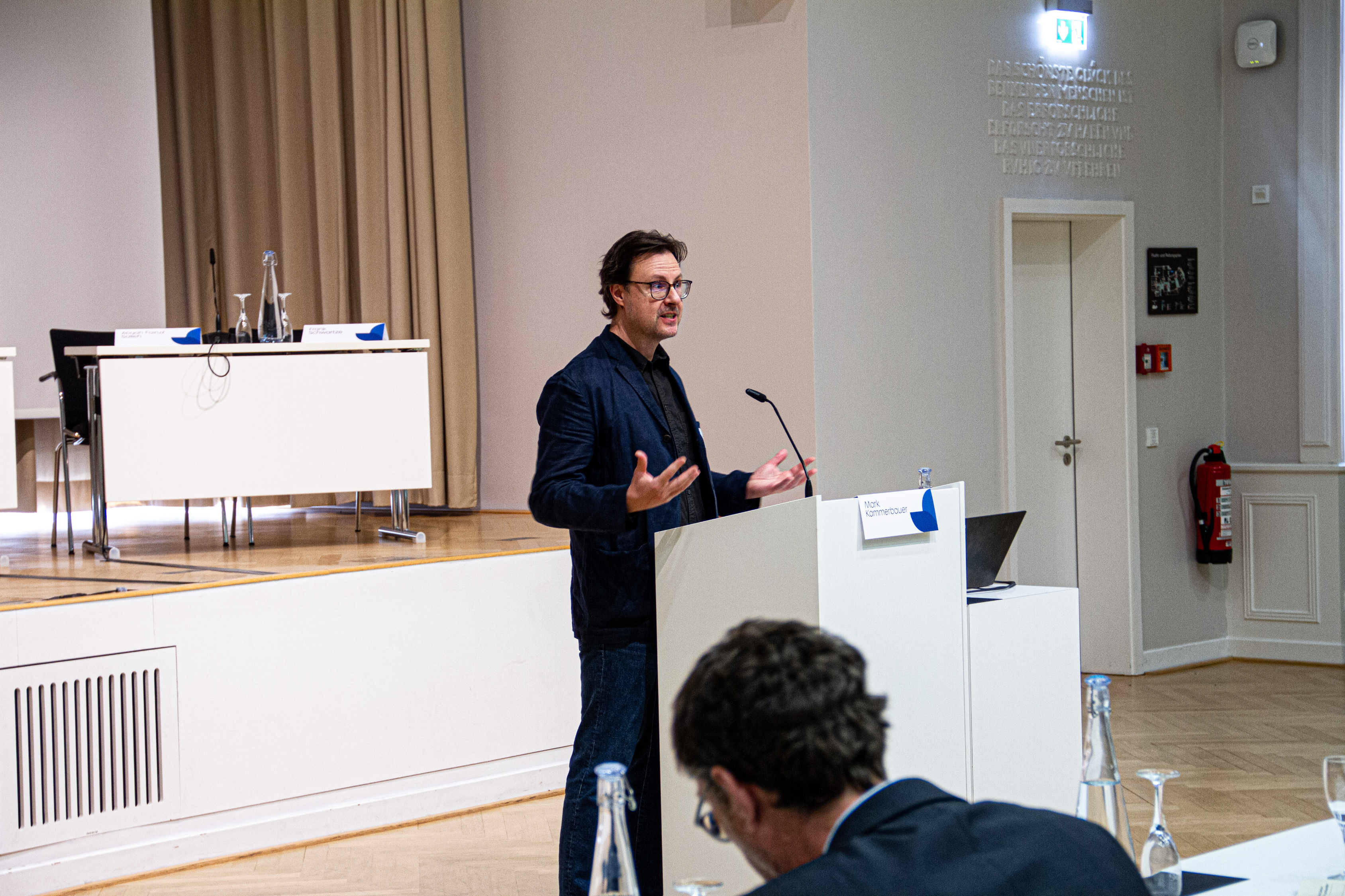
Format_Anpassung_Markkammerbauer
Mark Kammerbauer
Another highlight of the status seminar was the panel discussion with Atiqah Fairuz Salleh (United Nations University), Sabine Drees (German Association of Cities), Alexander Schmidt (University of Duisburg-Essen) and Mark Kammerbauer (Nexialist Agency for Research and Communication). Views on urban and regional sustainability goals were exchanged from stakeholder perspectives. The discussants agreed that all relevant stakeholders must be involved in the planning process from the very beginning and that this is the only way to ensure that sustainable development strategies are applied.

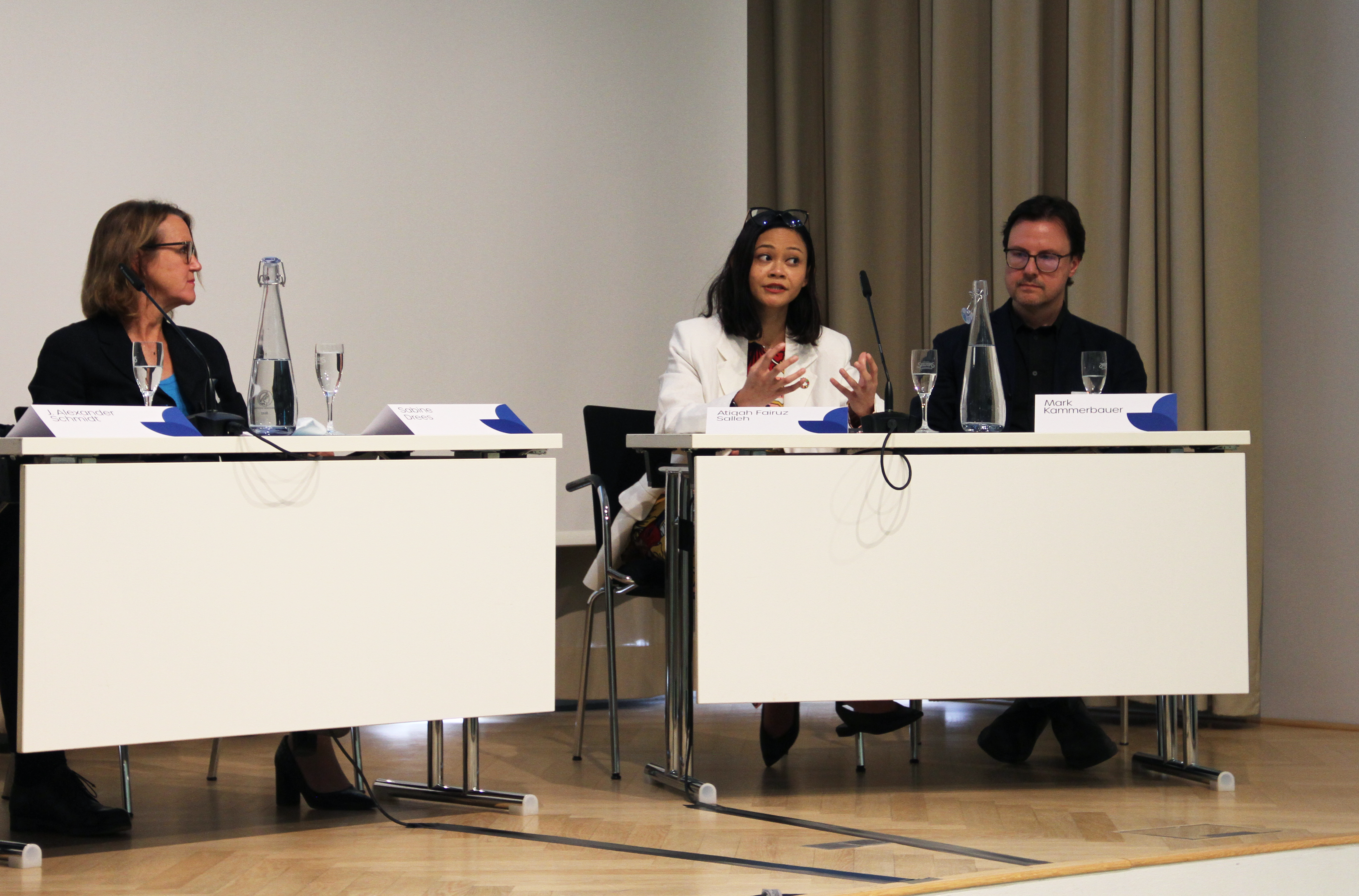
IMG_7213
Sabine Drees l Atiqah Fairuz Salleh l Mark Kammerbauer
What strategies look like in the context of the SURE focus topics was up for discussion in six parallel sessions. The common focus topics are thematic emphases that provide a basis for cross-project exchange on case studies and approaches. You are welcome to download the presentations on the focus topics here.
The two-day status seminar was rounded off by interactive exchange formats. In a World Café, the participants explored the following practice-relevant »how to« questions: How can the connection between urban and rural area be captured? How can sustainability measures be made economically viable? How can cultural values and local knowledge be integrated?
